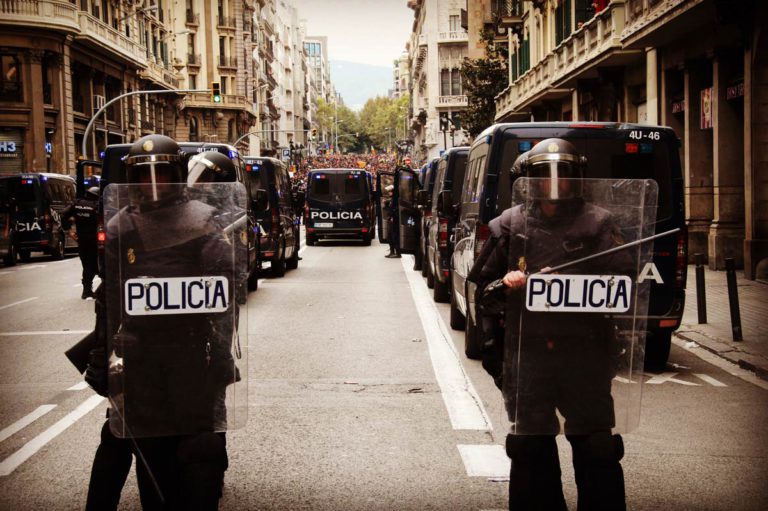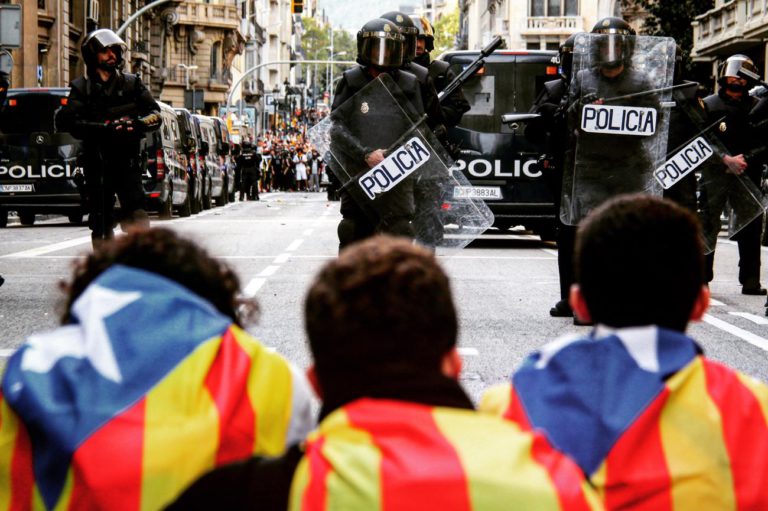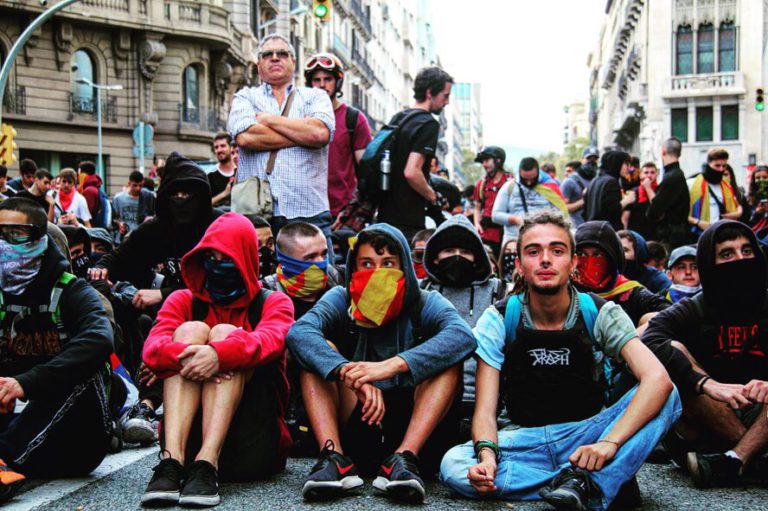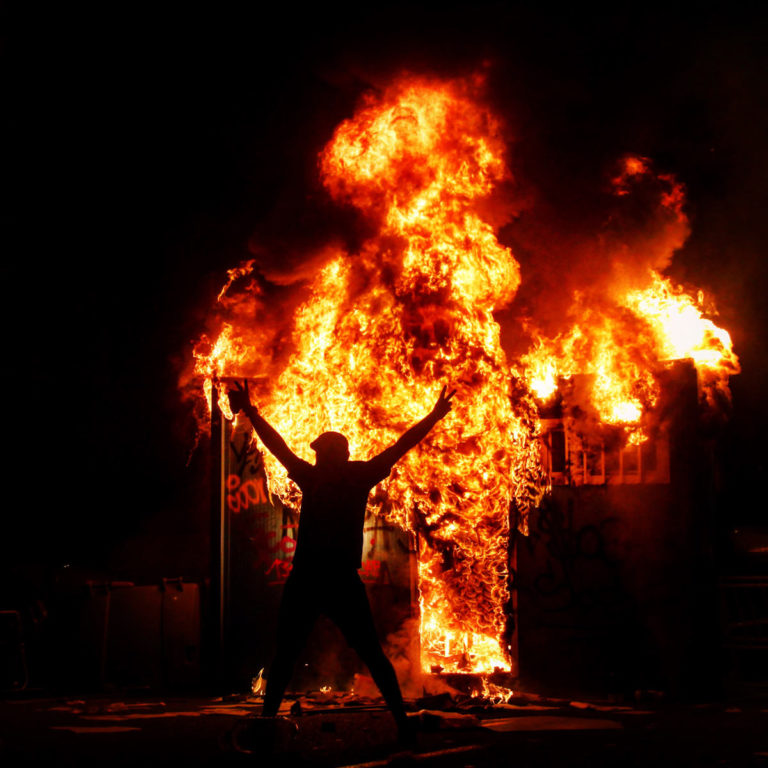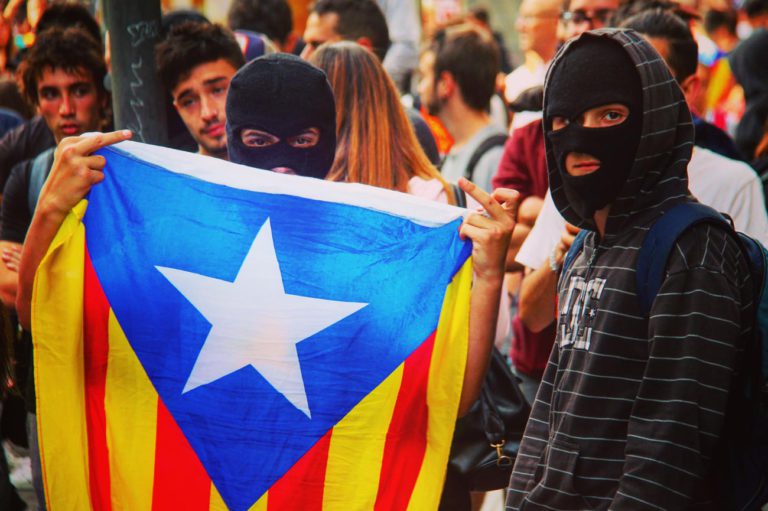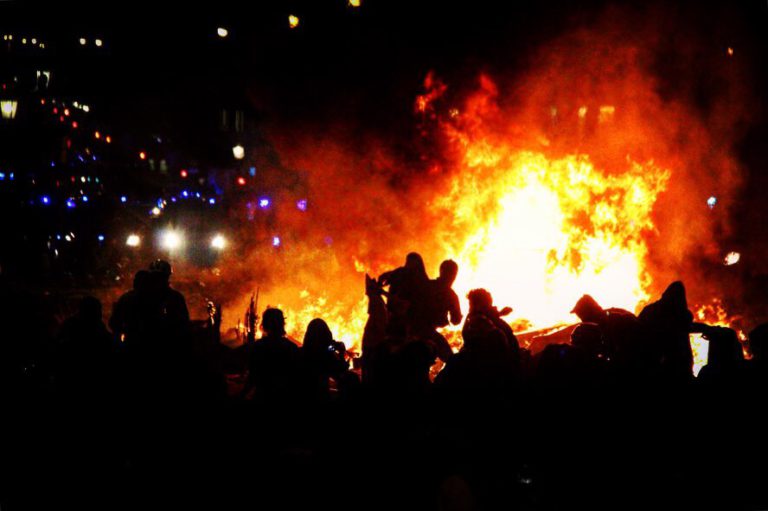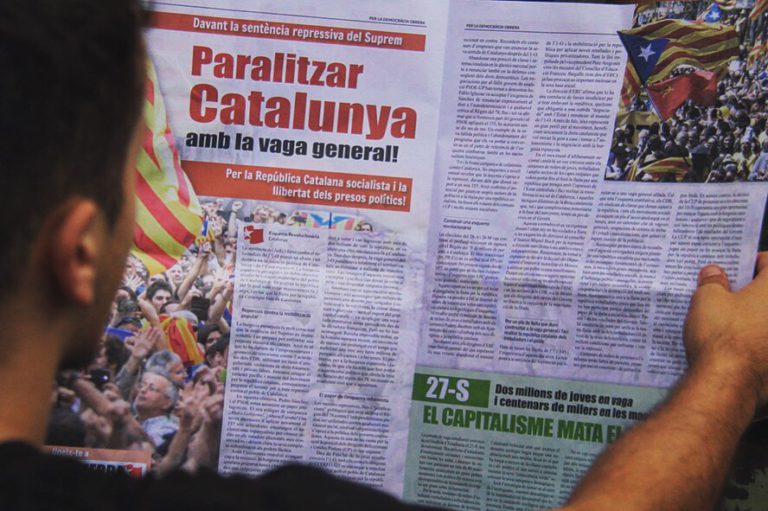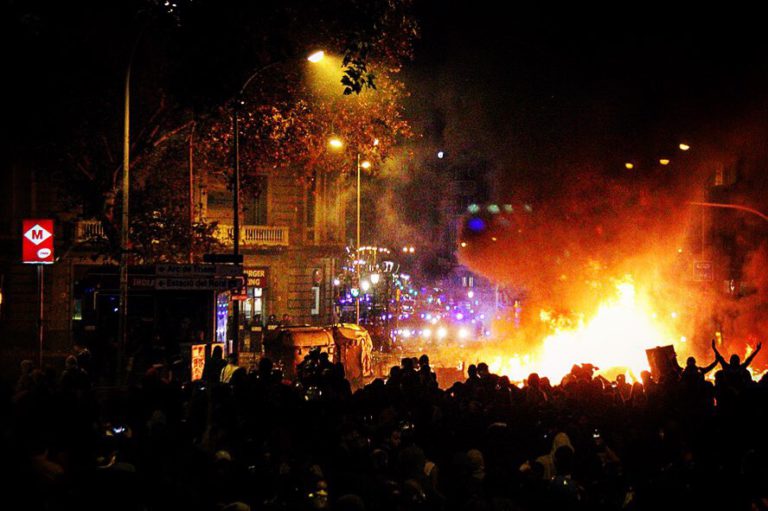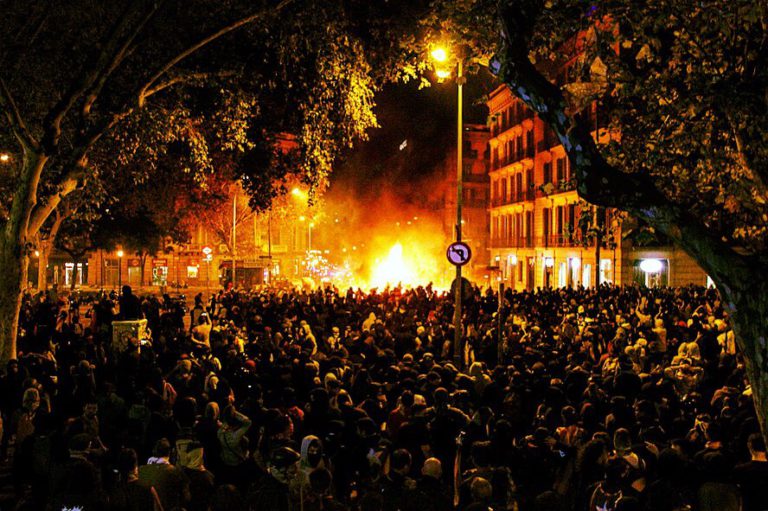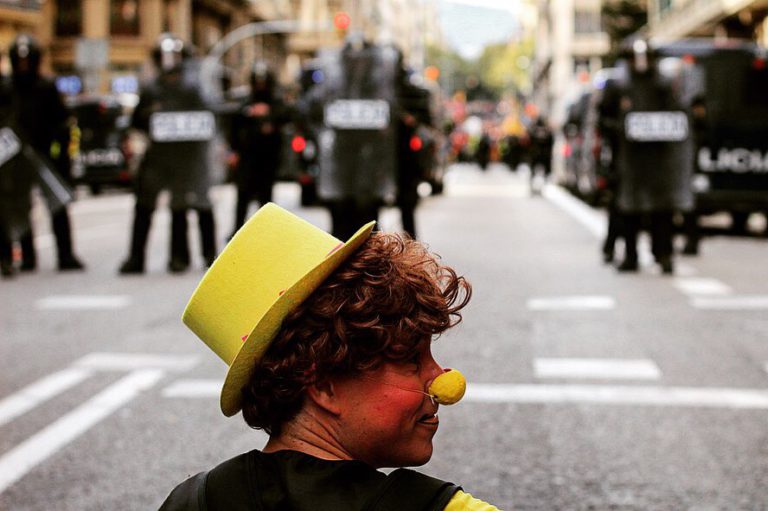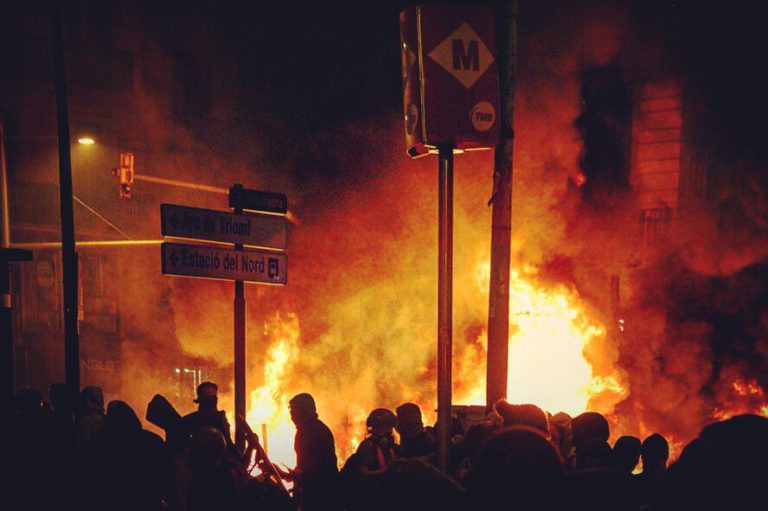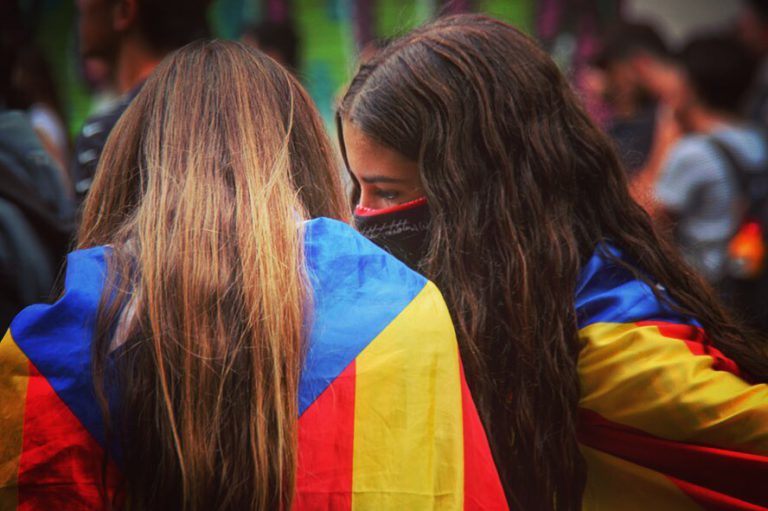October 2019
Clashes between riot police and protesters have broken out in Barcelona for the fourth consecutive day, as anger over the jailing of nine Catalan separatist leaders continues to grow.
A general strike was announced, with five peaceful marches converging on the city from all over the region, bringing the Catalan capital to a halt as main boulevards and metro stations were closed. Although the demonstrations down Passeig de Gracia and around the centre of Barcelona were tranquil throughout the day, things turned darker after sunset, as police and demonstrators clashed violently.
Demonstrators threw stones and cans at officers, while rubbish bins were set alight and shop windows smashed. Officers retaliated with their truncheons, while tear gas, rubber bullets and water cannons were also deployed. By the end of the night, the streets were a scene of carnage, with dozens of arrests made and a reported 96 people injured.
Protestors also blocked a motorway on the Spain-France border, bringing traffic to a standstill. This followed previous clashes between police and demonstrators at Barcelona airport, which caused a total of 108 flights to be cancelled, according to the Spanish airport authority Aena.
Why are people protesting?
The reason behind the chaos stems from the Spanish Supreme Court’s decision to sentence nine Catalan separatist leaders to between 9 and 13 years in prison. The separatists were convicted of sedition and misuse of public funds over their role in an illegal independence referendum in 2017. Another three were found guilty of disobedience and fined, but not jailed. All 12 defendants denied the charges.
After the ruling, a new arrest warrant was issued for former Catalan President Carles Puigdemont, who is currently living abroad in Belgium. Mr Puigdemont told a press conference that Catalonians were victims of a “strategy of repression and revenge”.
Most of the 12 leaders sentenced on Monday were either members of Catalonia’s government and parliament, or influential activists and cultural advocates. Throughout the four months of hearings, they told the court in Madrid that they were victims of an injustice in a trial built on “false” charges.
The longest of the penalties was handed to Oriol Junqueras, the former vice-president of Catalonia, who was handed a 13-year sentence. The prosecution had sought up to 25 years in prison for Junqueras.
What has the reaction been?
Junqueras accused Spain of jailing people for their political ideals and promised that the separatists would come back even stronger. But Spain’s Prime Minister Pedro Sánchez insisted the leaders had been jailed for criminal conduct. Critics of the Spanish government have accused them of acting like the dictatorship regime of General Franco in the mid-20th century.
Mr Puigdemont said the sentences handed to separatist leaders of “100 years in total” were “an atrocity”. “Now more than ever… it is time to react like never before,” he wrote on Twitter, adding: “For the future of our sons and daughters. For democracy. For Europe. For Catalonia.”
Why do some Catalans want independence?
Although Catalan independence has been an issue that has split the region for decades, there has been a growing movement for independence in the past ten years, as many Catalans believe that not only does their wealthy region have a cultural and political right to self-determination, but that they contribute a lot more to Spain than they are given back.
The real controversy of the matter, however, arises from the fact that the pro-independence government claims to speak for all Catalans and to have won a landslide victory in the referendum. In truth, less than 50% of the population turned out to vote as many chose to ignore a referendum that Spain declared illegal.
According to the latest figures, popular support for seceding from Spain – which reached a record high of 48.7% in October 2017 – is currently at 44%, with 48.3% of Catalans in opposition.
